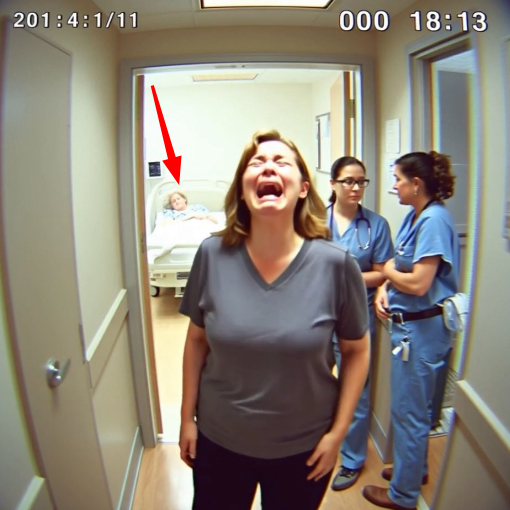
I strained to hear the words, praying I had misunderstood. But their hushed voices carried clearly through the corridor.
“Did you hear? His condition’s critical, but there’s been a mix-up with the donor registry,” the first nurse said, her voice tinged with frustration.
“Yeah, and there’s a chance they might not find a match in time,” the second nurse whispered back, her voice thick with concern.
My heart sank. How could this happen? After everything we’d been through, every step we’d taken, and every ounce of hope we’d clung to, this couldn’t be where it all faltered—in some bureaucratic mess.
The world blurred as tears filled my eyes. I could hardly breathe, feeling the weight of helplessness pressing down on me, more suffocating than the spring air I couldn’t feel. Daniel’s life depended on that donor match, a lifeline we’d been promised was already secured. But now, uncertainty replaced hope.
I sat there, chest heaving with sobs that wouldn’t come, and tried to pull myself together. Daniel needed me to be strong. As much as I wanted to curl up and let despair swallow me, I had to act. There had to be something I could do.
After a few deep breaths, I stood up, determination edging out despair. I walked back into the hospital, the sterile smell mingling with my anxiety. I needed answers, needed to know who I could talk to, what strings I could pull, how I could fix this.
I found Dr. Patel, Daniel’s hematologist, in the hallway. His face was a mask of professional calm, but I saw the worry etched in the lines around his eyes.
“Dr. Patel,” I began, my voice steadier than I felt, “I overheard something about a mix-up with the donor registry. Is it true?”
His expression flickered with surprise, then softened into empathy. “Emily, I’m so sorry you had to hear it like that. We’re dealing with a complicated situation, but I promise you, we’re doing everything we can to resolve it as quickly as possible.”
“But how did this happen? We were told there was a match,” I said, frustration seeping into my words.
“There was an oversight,” he admitted, his voice gentle but firm. “The donor we initially identified was deemed unsuitable due to unforeseen health issues on their part. We’re searching the registry again and expanding our parameters. But it takes time, and I understand how hard that is for you.”
I nodded, trying to absorb the gravity of the situation. “Is there anything we can do to expedite this? Anything at all?”
“Keep spreading the word,” Dr. Patel suggested. “The more people we can get registered as potential donors, the better the chances we find a match quickly.”
I left his office with a mission. The fear still gnawed at me, but I refused to let it paralyze me. I spent the rest of the day rallying friends and family, reaching out across social media, anything to widen the net for potential donors.
By evening, the fatigue hit me, bone-deep, but I refused to give in. Instead, I let it fuel the fire within me, a fire that wouldn’t die until Daniel was safe. As the sun dipped below the horizon, painting the sky in hues of orange and pink, I felt the warmth of hope seeping back in. I would fight for him, until my last breath.